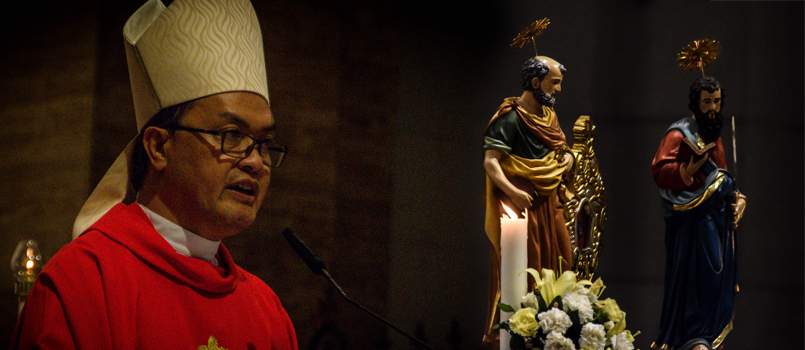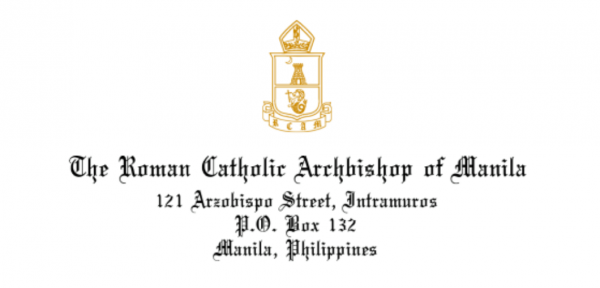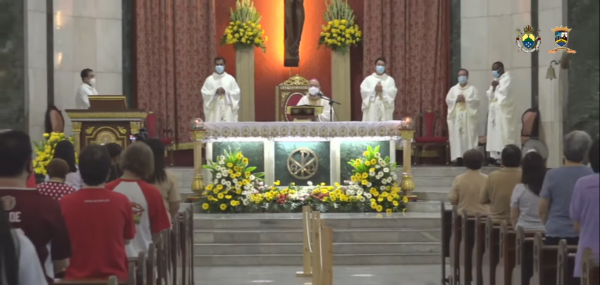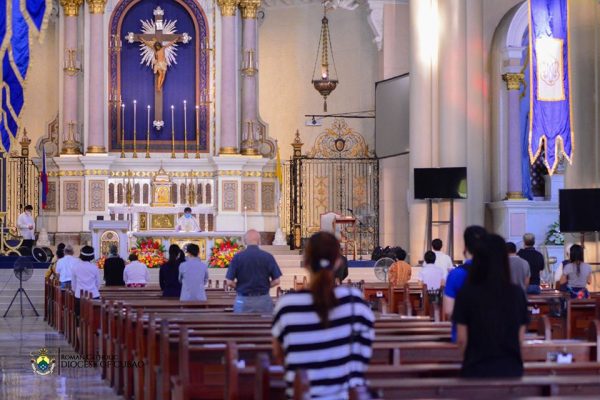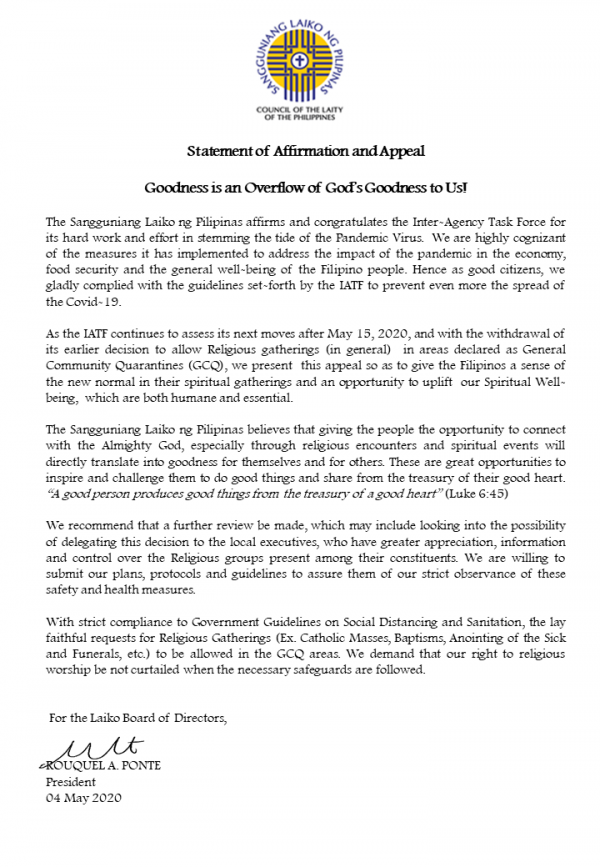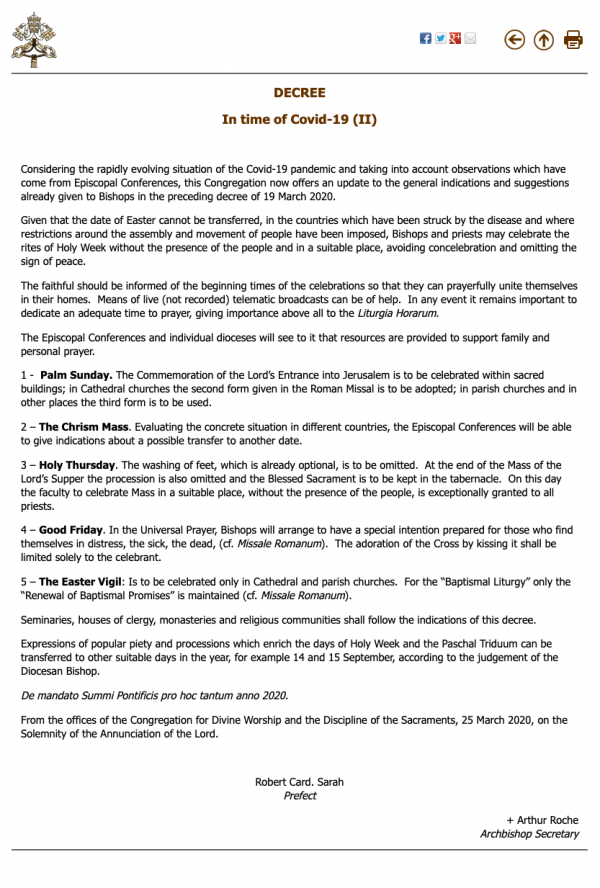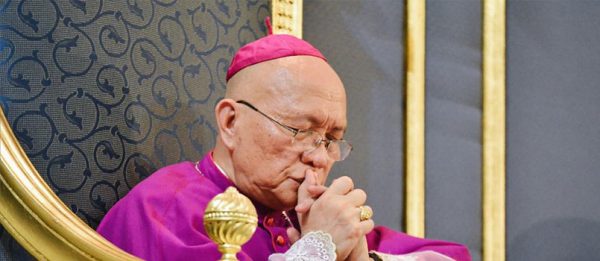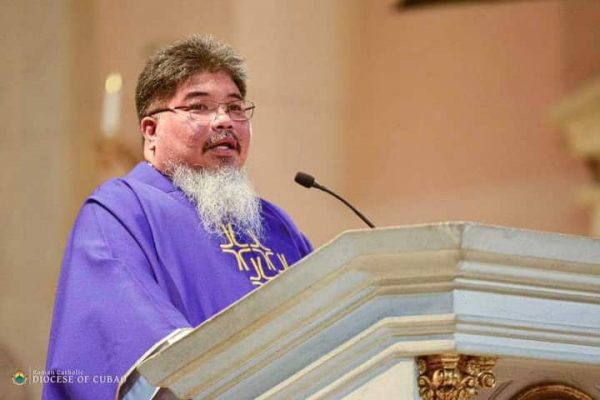390 total views
by Bishop Ambo David
June 29, 2017
What a joy it is to be celebrating this Pope’s Day with you, dear brothers and sisters, in the company of our Apostolic Nuncio to the Philippines, Archbishop Giuseppe Pinto, my dear brother archbishops and bishops, priests and religious. Magandang Gabi po sa inyong lahat!
I find it significant that we celebrate the Pope’s Day on the double Feast day of Saints Peter and Paul. I take it to mean that the Supreme Pontiff, the bishop of Rome who presides in charity over the universal Church, is expected to be both Petrine (bearing the likeness of Peter) and Pauline (bearing the likeness Paul). The Pope has to be apostolic in both senses (Petrine and Pauline) if he is to be true to his ministry as “Pontifex Maximus”, meaning, the Greatest Bridge-Builder.
I also think of bridge-building as a metaphor for facilitating communion of communities, which is essentially what being Church is about. It is a task not just of the Pope, but of the whole Church. We have to be both Petrine and Pauline as a Church, if we are to build and sustain communion in the one Lord Jesus Christ within the Church,
on all levels: BEC level, parish level, vicariate level, diocesan level, national level, global level.
What does it mean to be PETRINE? Let us take it from the Gospel of Matthew which was proclaimed to us today. What I find most interesting about this text, which we often call Simon’s Confession of Faith at Caesarea Philippi,
is that it becomes a double confession of faith in the version of Matthew. After Peter says “YOU ARE THE CHRIST, THE SON OF THE LIVING GOD!” Jesus makes a counter proclamation: “YOU ARE PETER, AND ON THIS ROCK I WILL BUILD MY CHURCH.” Simon’s confession of faith in Jesus as the Christ is reciprocated by Jesus’ Confession of Faith in Simon as the Peter. There is something almost covenantal about it. It seals a relationship:
that for as long as we have faith in Jesus as Christ, God will also put faith in us as the rock on which to build his Church.
I think of Peter, the one who is called “the Apostle to the Jews”, as the AD INTRA direction of the life of the Church. We cannot go out in mission if we do not first of all journey inward, into the very foundation of what it means to be a disciple—namely, our response of love to the God who loved us first. What kind of man was Peter? Let us come up with a brief character profile:
• Only two times do we hear of this fisherman fishing in the Gospels, in Luke 5 and John 21. In both instances,
he catches nothing. He comes home with an empty boat.
• He rarely gets things right. Even when he does, a blooper always follows. For example he says “You are the Christ…” and he is correct. But later he tries to prevent Jesus from going to Jerusalem, and Jesus tells him:
“Get behind me Satan!” From a foundational rock, he is suddenly being rebuked for being a stumbling block
to Jesus. (Mark 8,33)
• He is supposed to be the seasoned fisherman of Capernaum, and yet he panics in a storm while the carpenter from Nazareth is sleeping soundly in the boat. (Matt. 8:24)
• He is supposed to be an expert swimmer, and yet he sinks in the water when he gets frightened by the waves.
And Jesus again rebukes him for being a “man of little faith.” (Matt. 14:30)
• He is invited by Jesus to stay awake and keep watch with him. What happens? He falls asleep.
• He swears he would die for Jesus. But he ends up denying Jesus when confronted by a servant girl about his connection to Jesus.
• At the sea of Tiberias, when the beloved disciple shouts, IT IS THE LORD! he jumps into the water for shame.
• Can we really call Peter, rock, as Jesus did? Yes, he is the image of one who sank to the very ROCKBOTTOM. Having failed so many times, this man must have reached a point when he felt like a miserable failure.
He went to the very rock bottom of the journey inward. At the very base stripped of all pretensions, he discovers his truest, purest self that is now ready to answer Christ’s invitation to LOVE. It is The LOVE of Christ that solidifies him into a foundational rock.
To be PETRINE is to believe not just in Simon’s confession of faith in Jesus as Christ, but also in Christ’s confession of faith in Simon as Peter, and, in effect also on us and our wretched humanity which the Son of God had embraced.
What does it mean to be PAULINE, on the other hand? Let us take it from the second reading. It is “to be poured out like a libation”, to use the words of Paul himself. He had to be poured out because he was so full of himself, so confident of his own righteousness and his exclusive entitlement to God’s grace as a law-abiding Pharisee.
He had to fall before he could rise. He had to be blinded before he could see. He had to learn to empty himself, before he could know what it meant to live for Christ.
He used to presuppose that salvation was something one had to work for and deserve. And perhaps because he knew the stringent demands of the Law on righteousness, he used to be preoccupied with the question: “Who can be saved?” Suddenly, when he encountered the Lord, his life’s direction had radically changed. Suddenly he found himself asking a different question, not “Who can be saved?” but “Who will condemn us? Who can separate us from the loved of God?” And he declares in full confidence, “Nothing! Nothing can separate us from the love of God anymore, because of Christ Jesus our Lord!”
I think of Paul, whom Christian tradition calls the “Apostle to the Gentiles”, as the AD EXTRA, the outward direction of the mission of the Church. It is through Paul that we realize that being in mission is essential to being Church. Christ’s work of salvation continues with his body the Church. And this mission extends to the whole world, not just to Israel, not just to the righteous but to sinners as well. Therefore he says, ”There is no longer Jew nor Greek,
slave or free, male and female, because all of us are one in Christ.”
I hear the voice of Paul when I hear Pope Francis saying, “Christ is knocking at the door not to get in but to go out!” Christ did not build a Church turned in on itself, concerned only about its Churchy affairs. Christ sends us to be salt of the earth and light of the world. I hear the voice of Paul when he says, “When Church becomes self-referential,
she gets sick!” The shepherds must go out and smell like the sheep! Christ intended the Church not to be an exclusive company of the righteous but a field hospital for the bruised and the wounded.
I hear the voice of Peter when I hear the same Pope calling himself MISERANDO ATQUE ELIGENDO, wretched but chosen. I hear Peter in him when reaches out to sinners in a mission of mercy, when he says he understands people who have failed, couples who are struggling with a failed marriage. I hear what Jesus had said to Peter, “I have prayed for you that your own faith may not fail. And once you have turned back, you must strengthen your brothers.”
AD INTRA, with Peter, we must journey inward and grow in the love of Christ in order to be able to keep the community together in the bond of charity. AD EXTRA, with Paul, we must journey outward, never allowing our parishes to grow parochial in the negative sense, to keep the true spirit of Catholicity, of universality. Sts. Peter
and Paul, beloved apostles to the Jews and to the Gentiles, PRAY FOR US. May the Lord bless and keep our Supreme Pontiff, Pope Francis. AMEN.

